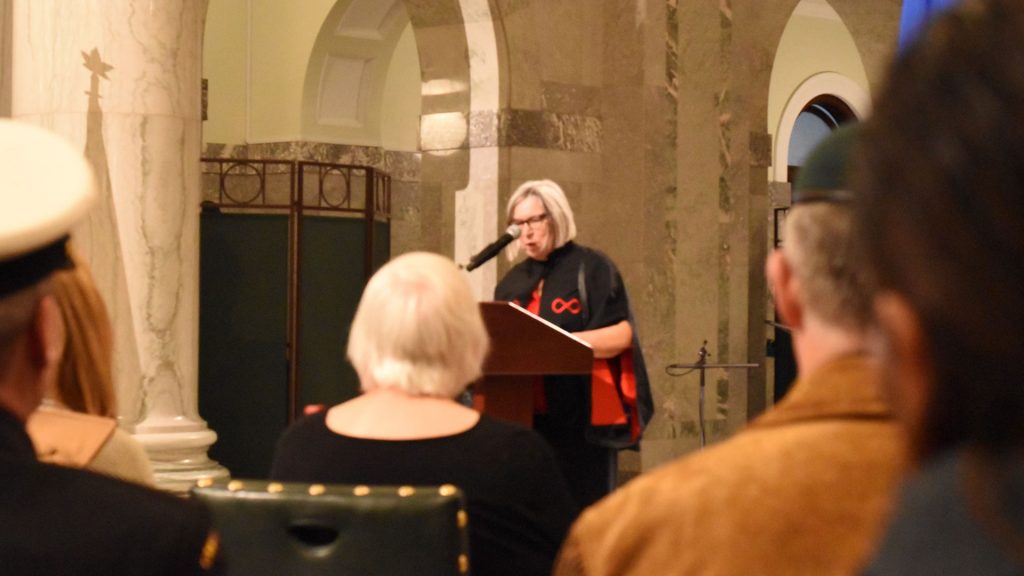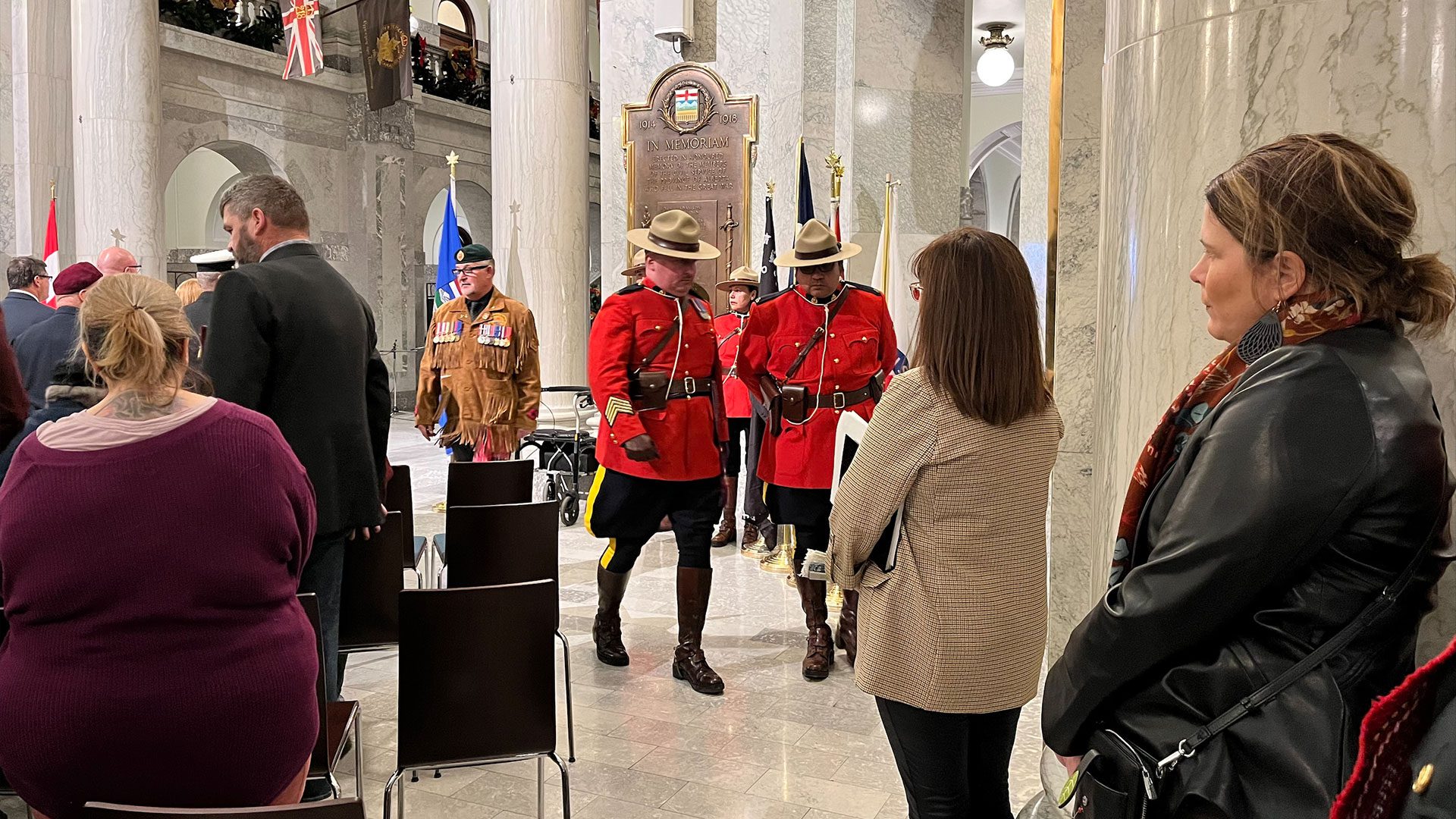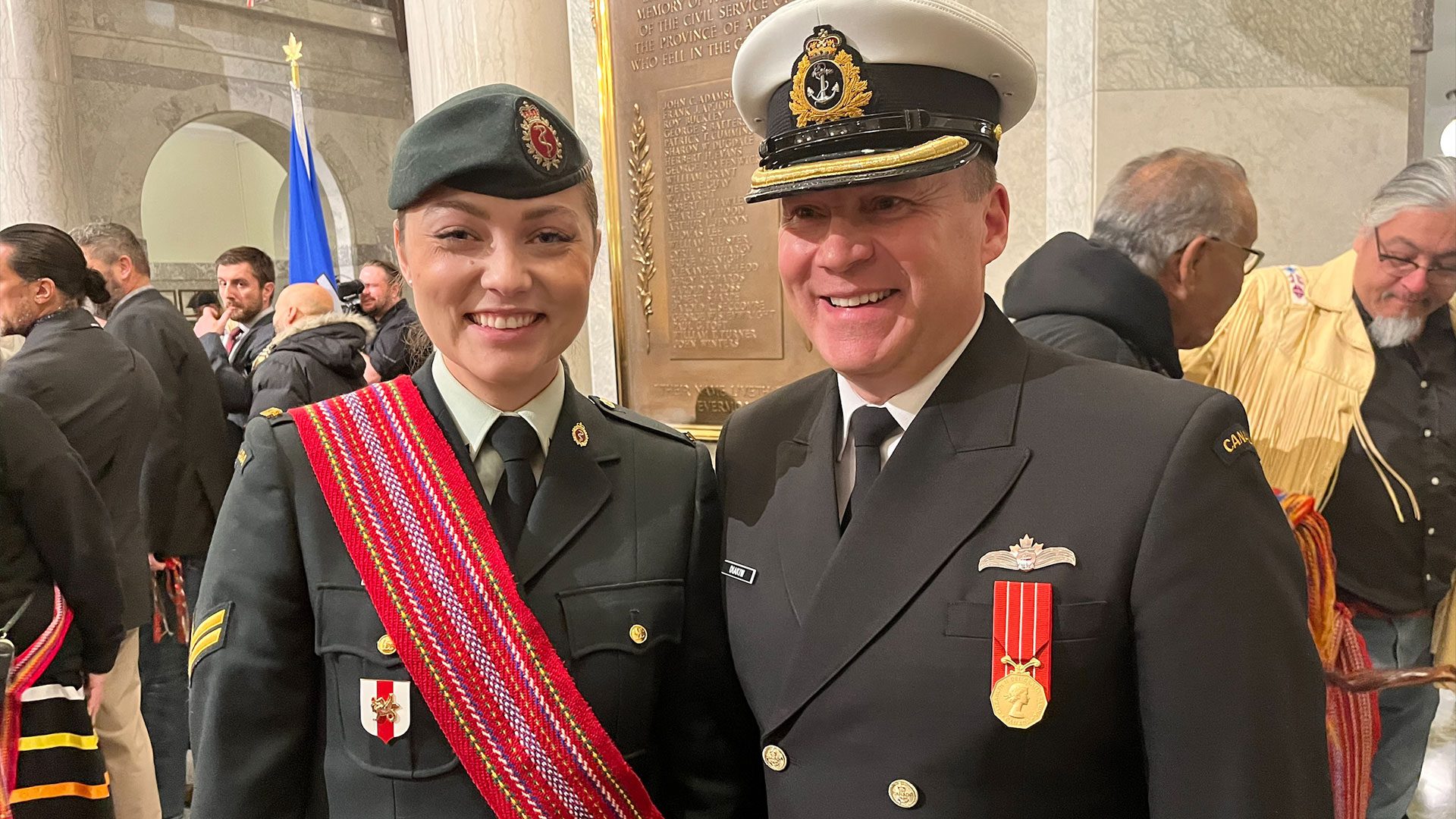
President of the Alberta Métis Nation, Audrey Poitras talks about the Métis constitution at the Alberta Legislature at Louis Riel commemoration
The president of the Métis Nation of Alberta (MNA) says that, despite setbacks, members are excited to move forward with the new Alberta Métis constitution.
In her remarks on Wednesday, Audrey Poitras talked about how far the Métis nation has come, and drew from the historical lessons that had been learned during their struggle for self government in the late 1800s.
“We remember today that Louis Riel sacrificed his life in a fight against the Canadian government’s encroachment on Metis land,” said Poitras on the 137th anniversary of his execution.
Riel was hanged for treason on Nov. 16, 1885 at the North-West Mounted Police barracks in Regina. Today, Riel is remembered as a great Métis leader, a founder of confederation, a political and spiritual leader and an advocate for the rights of Indigenous people.
In her remarks, Poitras talked about the changes she has seen, and thanked the government members in attendance for speaking about how the Métis have lived in Alberta long before the government was established.

“Much has changed in the relationship between the Metis people and the federal and provincial government,” said Poitras.
“It has not been easy … at times it seemed like we were moving backwards. Many of these years were categorized by endless legal arguments … but today the Metis Nation of Alberta has within our grasp what was ours in the first place, the right to govern ourselves.”
In August, during MNA’s three-day annual general assembly, discussion was split on whether to move forward on a ratification vote on a constitution. According to Windspeaker News, many participants felt the constitution was lacking substance and consultation
The MNA is currently run under the Alberta’s Societies Act, where it operates as an association. The MNA constitution focuses on funding agreements and establishing a governance structure for the Alberta Métis. People who oppose the constitution say they are worried about individual rights and freedoms.
The constitution establishes four branches of government: the Citizens’ Gathering, District Councils, the Citizens’ Council, and the Judicial Branch.
The Citizen’s gathering will be an annual summer meeting where MNA citizens and their elected representatives and come together for shared social, cultural, political, and spiritual activities.
The constitution divides Alberta into 22 districts, and each jurisdiction will have their own elected counsellor. The citizens’ council will be province-wide, with a president, one citizen’s representative, one women’s representative, and one youth representative per district.
The constitution comes after the Supreme Court ruling in the Daniels decision, which found the Metis are “Indians,” for the purposes of s. 91.24 of the Constitution Act, 1867, which gives the federal government the responsibility to engage in nation-to-nation, government-to-government relationships with Indigenous peoples.
According to a press release by the MNA, while 25 self-government agreements or modern treaties have been implemented across Canada involving 43 Indigenous communities, none are currently finalized in Alberta.
The MNA has been working on their constitution document for over two years.
APTN News reported in June 2021 that the MNA sued the Alberta government over a consultation policy after the government declined to participate in creating a consultation policy.
At the time Poitras referred to the snub as “systemic racism in action.”
There was a sense of excitement from participants after Poitra’s speech.

“I was invited as a representative of the defence aboriginal advisory group,” said Cpl. Larissa Lewis. She is Métis and her family is from High Level.
Lewis said she felt energized after hearing about the progress of the Métis people in Alberta, and moved by the video presentations about Louis Riel and the soldiers who were lost. She also said she was left feeling hopeful.
“Today stirs up a lot of emotions a lot of feeling that courage and pride in our nation and seeing how far we’ve come and it makes me excited for the future and where we are going … I’m looking forward to seeing what our future is with the new constitution,” said Lewis.









